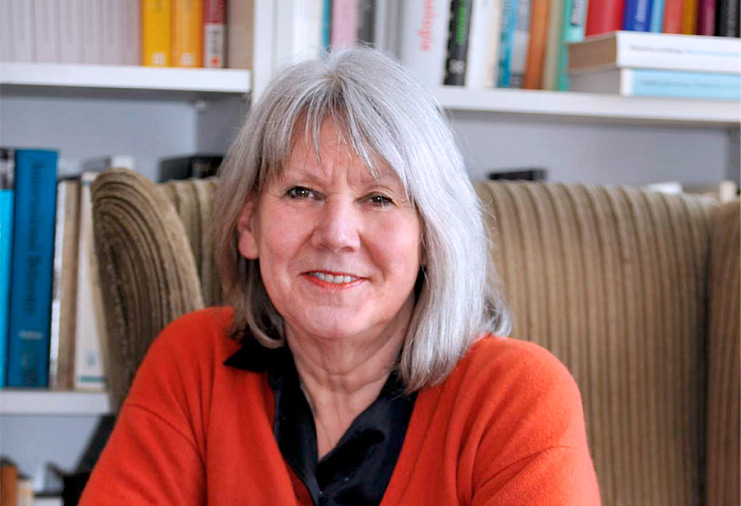Amélie Mummendey (1944-2018)
19.12.2018, by Tina Keil in announcement
Obituary

With immense sadness, we learned that Amélie Mummendey passed away on December 17th, 2018, at the age of 74. Amélie has been a leading figure in European Social Psychology, and member of the European Association of (Experimental) Social Psychology since its founding days.
Amélie was the personification of a truly “social” social psychologist. Throughout her career, she was inspired by societal phenomena, which she analysed with social-psychological paradigms, traced them to basic principles, and derived novel and sound theory. Central to her research has been the question what unites individuals and what sets them apart. This was already visible in her early research on aggression as social interaction, and then in her work on various relevant moderators of social discrimination or, more broadly, intergroup relations. Throughout, Amélie challenged theorizing and empirical findings. Is this really the whole story? Could it be different? What did we overlook? – With this approach, she and her collaborators alerted us, amongst others, to the positive-negative asymmetry in social discrimination, and later to people’s tendency to engage in ingroup projection, thereby claiming superior prototypicality and status within superordinate categories.
We are sure that besides us, there is a substantial number of people who can say that Amélie laid the foundation for their academic career, was their role model on how to engage in research, and someone that helped them to discover how relevant and rewarding research and teaching in Social Psychology are. Moreover, she was living evidence that women can reach and deserve top positions in academia, at a time when male dominance was still the norm. In addition, she realized early on that academics need to leave their ivory tower and involve different stakeholders and different disciplines in their work.
Amélie was extremely passionate about supporting junior scientists on their often rocky road to academic success. She not only encouraged those that she supervised personally in their PhD projects, but also instigated infrastructure for a much broader community of PhD students and post-doctoral researchers: She founded and headed the International Graduate College (IGC) for Conflict and Cooperation between Social Groups, a collaborative effort involving groups from Germany, Belgium (Louvain-la-Neuve), and the UK (University of Kent and University of Sussex), from 2000 to 2009. Moreover, as pro-rector of the University of Jena, she was responsible for the postgraduate education and involved in setting up an International Max Planck Research School. On a smaller scale, the annual Jena Intergroup Meetings provided a format where young academic talent got many opportunities to present their work and exchange ideas with excellent senior researchers.
Amélie was a determined member of the EASP, which she joined in its very early days in 1977. For her, it was beyond any doubt that academic social psychologists should join the Association and contribute to its work. Accordingly, it is not surprising that so many of her former students followed her in taking responsibility within the EASP, for example as (associate) editors for the European Journal of Social Psychology or as members of the EASP’s Executive Committee. Amélie herself served the Association on the Executive Board from 1984 to 1990, and as associate editor of the EJSP from 1994 to 1997. She organized numerous conferences and smaller meetings for the EASP. In addition, she taught at three EASP Summer Schools (Bologna, 1986: San Sebastian, 1991; Leuven, 1998). In recognition of her enormous contribution to the field, the EASP awarded her the Tajfel-Award in 1993, and the Codol-Award in 2011.
The above is only a small selection of the many distinctive achievements and contributions that Amélie Mummendey realized in her career, in Germany, in Europe, and beyond. We mourn the loss of an exceptional social scientist, a visionary university policy maker, a great teacher, a wonderful person, and friend.
Sabine Otten, Kai Sassenberg, Kai Jonas, & Thomas Kessler, also in the name of many other people that share the privilege to have worked with and learned from Amélie Mummendey.